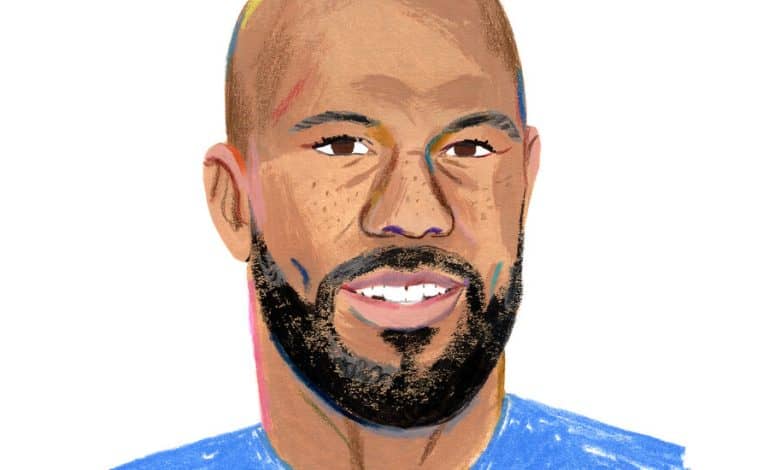Common Credits Ralph Ellison for Pointing Him Toward Music

What books are on your night stand?
The Bible, “The Selected Works of Audre Lorde,” edited and with an introduction by Roxane Gay, and “The Tongue — A Creative Force” by Charles Capps. “The Tongue” is a spiritual book based on Bible scriptures and how you use the word of God and apply it to your life to manifest the things you want. I love this book because it put in perspective that you don’t have to be a religious person to understand the power of words and the power of the word. I’m a believer in God’s word so learning how to apply that was really inspiring and impactful for me.
What’s the last great book you read?
A book called “The Wisdom of Florence Scovel Shinn,” and Rick Rubin’s “The Creative Act: A Way of Being.” I started reading “The Wisdom of Florence Scovel Shinn” in my mid-twenties and I don’t think I had gathered how powerful our minds are and how much the things we say to ourselves mean. I was really moved by “The Creative Act” because I think Rick Rubin has experienced so much in life. He was one of the pioneers in hip-hop, so I really related to him and his journey. I learned from a musician friend of mine that so many things can contribute to your musical/creative vocabulary, even nature. When Rick Rubin mentioned it, it solidified that point. It’s like getting affirmed or talking to a therapist who’s also an artist. I felt like I got art therapy from him.
What book has had the greatest impact on you?
The Bible. And after that, “The Autobiography of Malcolm X” and “The Mastery of Love” by Don Miguel Ruiz and Janet Mills.
Which writers — novelists, playwrights, critics, journalists, poets — working today do you admire most?
Playwrights: I love Stephen Adly Guirgis and Tarell Alvin McCraney (who co-wrote “Moonlight” based on his own play). Poets: Morgan Parker.
What book influenced you to become a musician?
“Invisible Man” by Ralph Ellison. I read it in the sixth grade and it gave me the appetite to write. I loved what he was speaking up for and saying. It really impacted me as a young Black boy to want to be seen, heard and recognized, and his book made me feel seen and heard in certain ways. It made me learn that through the music and art I do I can return the favor and make people feel seen and heard as well.
What’s your favorite memoir by a musician?
“Q: The Autobiography of Quincy Jones.” Because he was born in Chicago, I connected to that, but also, just knowing what he came from, when he talked about how poor his family was and what his family went through. To know that he eventually became the person who has worked with some of the greatest artists, from Michael Jackson to Frank Sinatra to Miles Davis — it was inspirational to think about a man who came from one of the poorest places in the country and became one of the most fruitful human beings on earth.
What’s the one wellness book you’d recommend and why?
“A Return to Love” by Marianne Williamson. It’s a self-help book but that is wellness to me, spiritual wellness. I was already hearing quotes from “A Return to Love” before I read it, and the quotes were so impactful that I used them in speeches.
I needed to be reminded that I had light and something to offer, and that I didn’t need to dim my light for anyone. Also, that that power should be illuminated, expressed and given to whoever needs it. It helped me on my journey to remember to love myself, to understand my light and love my light and not be afraid of it and give it to the world.
What was the most surprising response you received to your earlier memoir?
My mother told me, “Boy, I didn’t know you did all that stuff.” Stuff I did growing up, such as having girls in the house, getting into fights and just generally getting into trouble in high school.
Which subjects do you wish more authors would write about?
I would like authors to write more about the complexities of human emotions and behaviors without being too judgmental and definitive — just expressing that humanity has so many dynamics, depths and colors.
You’re organizing a literary dinner party. Which three writers, dead or alive, do you invite?
James Baldwin, Nas, and Kahlil Gibran.